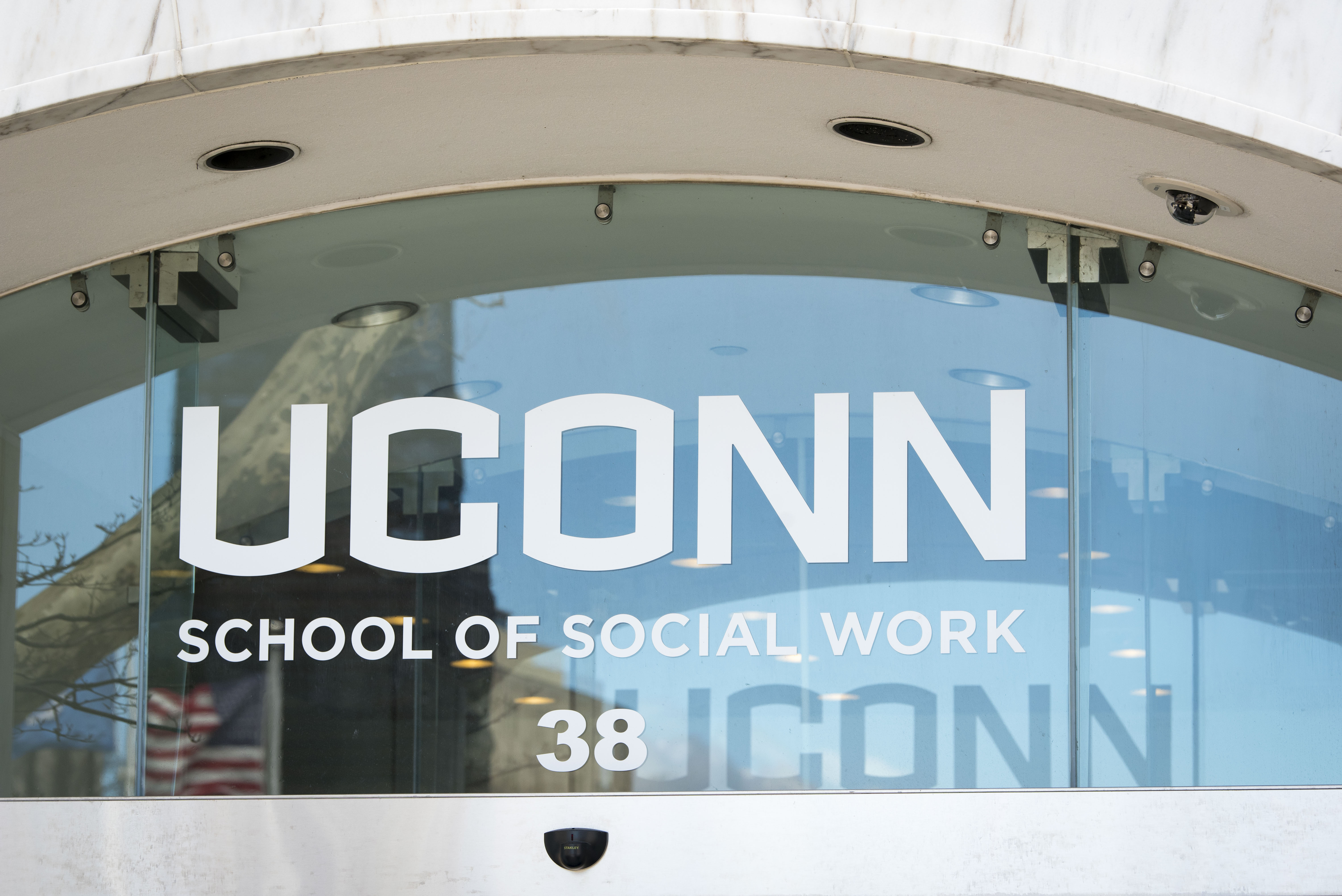Maybe a family member has gotten sick. Or a parent has lost a job. Or they miss their friends, their teachers, and the normalcy of pre-pandemic life.
Maybe they’ve witnessed violence. Or been treated unfairly because of the color of their skin. Or are afraid by what they see and hear about racist action and speech on the news and social media.
The world right now is scary and confusing, and a return to school amidst the coronavirus, economic crisis, and a national conversation about anti-Black racism doesn’t mean a return to routine for school-aged children in Hartford and beyond – for many, it means an increase in stress, fear, isolation, and uncertainty.
Students from the UConn School of Social Work, though, will be out in force in Hartford Public Schools during the upcoming school year to lend their helping hands, and trauma-informed support, to struggling students in need of assistance.
“The ongoing dual traumas of COVID and systemic racism are having a real and substantial impact on school-age children – particularly students of color, who are disproportionately affected by both – across our state and our country,” says Nina Rovinelli Heller, dean of the UConn School of Social Work. “Children are struggling. Their families are struggling. And the UConn School of Social Work has the expertise and resources to assist.”
More than 20 UConn Master’s of Social Work (MSW) students with diverse experiences who have concentrations involving individuals, groups, and families will be deployed throughout the Hartford Public Schools system to work with students from kindergarten to grade 12. The MSW interns are being provided with specialized training in school-age mental health and trauma, anti-racism, trauma-informed response, stress, abuse, and supporting youth resilience.
“Field placements are a hallmark of social work education and experience,” Heller says. “UConn’s provides a rigorous program for students, and our distinguished faculty take an active role in the liaison work between the school and the placement agency.”
She continued, “As part of a land grant university, the School of Social Work takes seriously our public service mission, particularly within our community in Hartford, and we are able to draw on all of UConn’s outstanding resources for our MSW experience – part of what set us uniquely apart from many online programs. The challenges in establishing field placements in these unprecedented times are not insignificant, but those same challenges are precisely why it is so important to have social workers accessible and available right now. The School of Social Work is well-positioned to get to work helping our students, our teachers, and our families in this difficult time while providing invaluable, hands-on experience to our MSW students.”
“We care deeply about our students and know that many of them have experienced trauma as the pandemic and a surge in awareness of the existing racial tensions in our country continue to unfold,” says Hartford Public Schools Superintendent Dr. Leslie Torres-Rodriguez. “Through this intentional and innovative partnership with the UConn School of Social Work, we are committed to working across schools to bring a culturally responsive and trauma-informed approach to healing. Our goal is to also combat racism and continue to dismantle inequitable systems and structures so that our entire HPS community can feel safe, valued, and connected.”
The interns will be available to support school district social workers, administrators, teachers, and staff by providing a variety of services, including assessment and identification of social and emotional risk, well-being, and learning; assessment of student and family needs, and connection with available resources; conducting trauma-informed or grief support groups for students; and offering supportive counseling. The interns will be overseen by their field instructors within the schools as well as faculty advisors at the School of Social Work, which includes faculty with significant clinical and field experience in areas related to trauma.
MSW students continue coursework concurrently with their field placements. The Hartford Public Schools placements will begin in October, and each intern will complete 15 hours per week for a total of 28 weeks. Their placements can be either remote or in-person, depending on the needs of the school and while adhering to all applicable health and safety guidelines.
The MSW placements are provided at no financial cost to Hartford Public Schools. Schools are responsible for completing evaluations of intern performance and providing supervision to their interns.
The School of Social Work’s Director of Field Education, faculty member Megan Berthold, is also currently working with other school districts around the state to create similar programs for MSW students to assist and support school-age children, Heller says. Details on those partnerships will be available in the coming weeks.
Based in downtown Hartford, UConn’s MSW program was ranked among the top 15 percent of programs nationally in 2019. It is the longest-standing MSW program in Connecticut, with advanced concentrations in individuals, families and groups; community organizing; and policy practice. Field education is an integral part of UConn’s MSW curriculum and represents a significant portion of each student’s educational experience. For more information about the UConn School of Social Work, visit ssw.uconn.edu.



